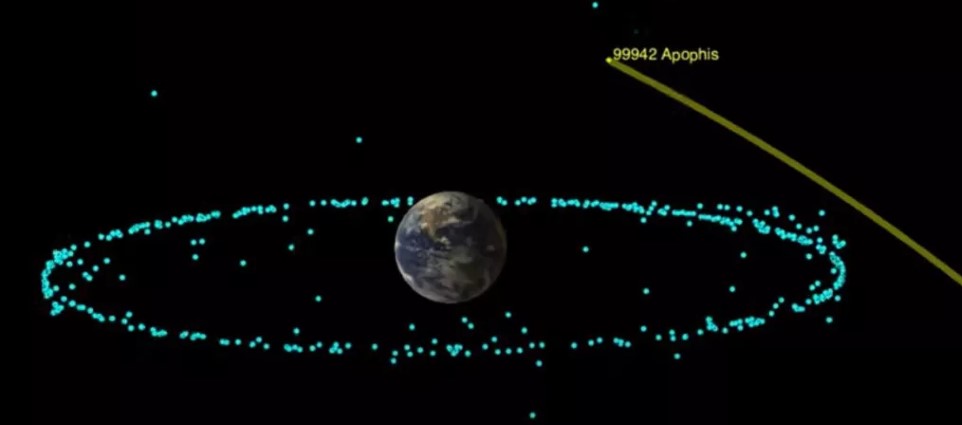A few years ago, astronomers ruled out the possibility that a potentially dangerous asteroid named Apophis would change direction and hit Earth as it flew by. With the double asteroid redirection test, we saw that it is possible to change the orbit of an asteroid by hitting it with something.
Many space rocks are floating around in interplanetary space. What if one of them ran into Apophis? What if it threw Apophis off his current course? What if the new trajectory is a collision course with Earth?
Well, you can relax. Astronomers Paul Wiegert of Western University and Ben Hyatt of the University of Waterloo in Canada have projected the orbits of more than 1.3 million known asteroids in the inner solar system and come to a comforting conclusion: No asteroid will collide with Apophis in the next few years.
“Given how close Apophis will be to Earth, there is a possible risk that a deviation from its current trajectory could bring Apophis closer to a collision with us,” Hyatt says.
“Hypothetically, another asteroid colliding with Apophis could cause such a deflection, which prompts us to study this scenario, however unlikely it may be.”
Apophis was discovered in 2004 and immediately assessed as a potential threat. Early predictions suggested it had a very alarming 2.7 percent chance of hitting Earth during its flyby in 2029.
That possibility was ruled out fairly quickly, but Apophis’ orbit takes it to fly past Earth every eight years. Until astronomers make new precise measurements of the asteroid’s position during its flyby in 2021, that possibility has been ruled out for the foreseeable future.
This was great news. But there is something existentially disturbing about the threat of an asteroid collision. There is little we can do about it unless we have an early warning. Since Apophis previously posed the greatest threat in this direction, astronomers are eager to rule out all possibilities.

So, Wiegert and Hyatt set about modelling. Based on current data, there is no risk of collision. Apophis may fly past another asteroid called Xanthus in December 2026 at a distance of 10,000 km they will not collide, but it is possible that some invisible debris following Xanthus, if it exists, could hit Apophis. But the risk of this, according to modelling, is insignificant.
“We calculated the trajectories of all known asteroids using a detailed computer simulation of our solar system and assessed the possibility of such an unlikely event,” says Wiegert. “Fortunately, such clashes are not expected.”
So all we have to worry about now are the unknown asteroids.
Read also:
- NASA’s VIPER mission is one step closer to launch
- NASA may refuse to send samples of Martian soil to Earth
